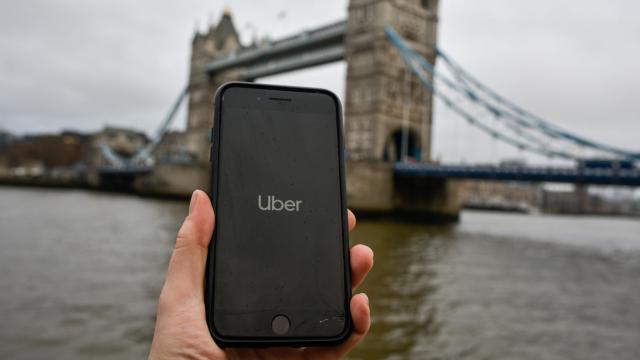Uber drivers in the UK should be classified as workers and entitled to both paid vacation time and the minimum wage, according to a ruling Friday by Britain’s Supreme Court. But Uber’s London office is already disputing the scope and relevance of the ruling for its British drivers, insisting that its own rules have changed dramatically since the case was first brought by 25 drivers in 2016.
The UK Supreme Court ruling notes five reasons that Uber drivers should be classified as workers rather than independent entrepreneurs. First, the court pointed out that Uber drivers have no say in the amount charged for each ride — a number set by Uber. If Uber sets the price, how are they not the driver’s real employer?
Second, Uber sets the contract terms between riders and drivers through their app. Third, Uber constrains all drivers in their ability to accept and decline rides at will. Drivers are penalised if they decline too many rides, another point of fact that would make it pretty obvious Uber is an employer who’s holding all the cards in the employment relationship.
Fourth, Uber penalises or bans drivers who don’t maintain a sufficiently high rating, another act more consistent with an employer-employee relationship. And lastly, Uber restricts the amount of communication between drivers and riders, something that wouldn’t be normalized if Uber drivers were really just working for themselves.
From the UK Supreme Court’s press release on Friday’s ruling:
Taking these factors together, the transportation service performed by drivers and offered to passengers through the Uber app is very tightly defined and controlled by Uber. Drivers are in a position of subordination and dependency in relation to Uber such that they have little or no ability to improve their economic position through professional or entrepreneurial skill. In practice the only way in which they can increase their earnings is by working longer hours while constantly meeting Uber’s measures of performance. The Supreme Court considers that comparisons made by Uber with digital platforms which act as booking agents for hotels and other accommodation and with minicab drivers do not advance its case. The drivers were rightly found to be “workers.”
Uber did not address questions posed by Gizmodo about how vacation time might be allocated for drivers moving forward. The company seems to believe things have changed so much since the case was started back in 2016 that it’s almost irrelevant. Or, at least, that was the suggestion.
“We respect the Court’s decision which focussed on a small number of drivers who used the Uber app in 2016. Since then we have made some significant changes to our business, guided by drivers every step of the way,” Jamie Heywood, Uber’s regional general manager for Northern and Eastern Europe, said in an emailed statement to Gizmodo on Friday.
“These include giving even more control over how they earn and providing new protections like free insurance in case of sickness or injury,” Heywood continued.
Full-time workers in the UK are entitled to at least 28 days of paid vacation time each year, a common practice in wealthy countries not named the United States. The U.S. is the only advanced nation in the world that doesn’t guarantee any paid vacation time for workers as a matter of law.
Where does this leave Uber drivers in the UK? It’s really anyone’s guess since laws are fake until they’re enforced. Uber’s team of lawyers have almost certainly figured out how to dodge the most cost-intensive implications of today’s ruling, otherwise they’d likely be threatening to pull out of the UK altogether. There was no indication in today’s communications from Uber that they plan anything so drastic. But that’s what Facebook did in Australia this week, and both the Australian government and Facebook seem unlikely to blink.
Silicon Valley’s biggest companies will not be pushed around — by Supreme Courts or anyone else who gets in their way. They’ve made that much abundantly clear.
